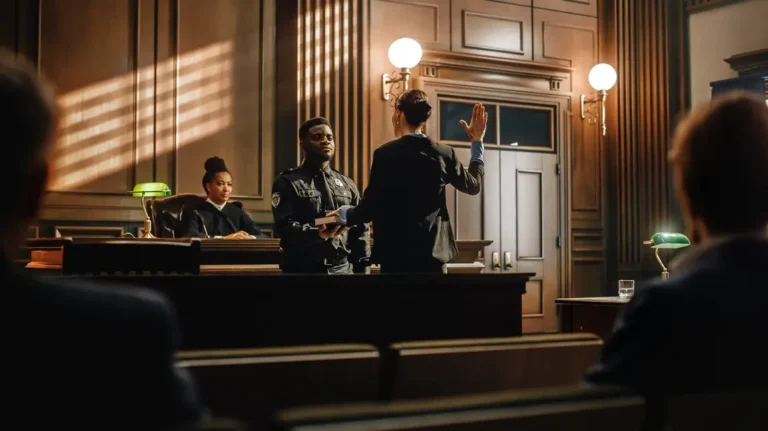Ohio offers victims of sexually oriented offenses or stalking the ability to obtain a protection order that prevents the alleged offender from taking specific actions, such as:
- Contacting the alleged victim,
- Threatening the alleged victim,
- Going to the alleged victim’s home or workplace, or
- Physically assaulting the alleged victim.
If you are facing a protection order in Dayton, Ohio, or require the services of a Dayton sex crime lawyer, reach out to Gounaris Abboud, LPA as soon as possible.
Different Types of Protection Order in Dayton, Ohio
A judge can grant a temporary protection order (TPO), which lasts for only a short period until the court can hold a hearing on a full order.
The judge can grant a TPO following allegations:
- Domestic violence,
- Aggravated assault,
- Felonious assault,
- Menacing by stalking, or
- Aggravated trespass.
Violation of a TPO is a criminal offense.
A civil protection order issued under Ohio Revised Code Section 3113.31 applies only to domestic violence situations.
That means the alleged act of violence must have occurred toward the accused’s household or family member.
A civil protection order can remain in effect from six months to five years.
If the alleged victim is not a family or household member, the victim can request a criminal protection order if the accused faces charges for any of the following criminal offenses:
- Felonious assault,
- Aggravated assault,
- Assault,
- Aggravated menacing,
- Menacing by stalking,
- Menacing, or
- Aggravated trespass.
The criminal protection order can apply to the alleged victim, as well as their family members, if they are in danger.
Stalking or Sexually Oriented Offense Protection Orders in Ohio
Stalking or sexually oriented offense protection orders (SSOOPO) are different from customary protection orders in Ohio.
To file for an SSOOPO against someone 18 or older, the alleged victim has to file their petition in the court of common pleas in the county they live in.
There is no cost to file the petition for an SSOOPO, get the order issued, or enforce the order.
Additionally, law enforcement will serve the order free of charge.
If the petitioner can show that the suspect engaged in conduct that would cause a reasonable person to believe that their health, welfare, or safety were at risk and that the suspect presents a continuing danger to them, the judge can order electronic monitoring.
When someone files for an SSOOPO, the court will hold an ex parte hearing with the accuser and collect information about the circumstances.
The judge will then decide whether to issue a temporary protection order until the full hearing occurs. The judge will schedule the full hearing within seven to ten days after the petition is filed.
At the full hearing, both parties will have an opportunity to present their side of the case.
After the hearing, the judge will decide whether to grant a final protection order, which can last up to five years.
Civil Stalking Protection Order in Ohio
A victim can apply for a civil stalking protection order in Ohio against anyone who has committed the crime of stalking or menacing by stalking.
Menacing by stalking occurs when a person knowingly engages in a “pattern of conduct” that makes the victim believe the stalker will hurt them physically or causes them mental distress.
Mental distress typically means any condition that would require counseling or therapy.
Examples of stalking behavior include things like:
- Tracking the victim’s location with GPS or cell phone applications,
- Trespassing in the victim’s home or workplace,
- Threatening the victim or their family,
- Scrupulously monitoring the victim’s social media, and
- Following the victim home repeatedly.
To constitute a “pattern of conduct,” the alleged victim needs to demonstrate at least two actions or incidents of concern by the suspect.
Ohio Sexually Oriented Protection Order
. A sexually oriented offense occurs when someone commits or attempts to commit:
- Rape,
- Sexual battery,
- Unlawful sexual contact with a minor,
- Gross sexual imposition,
- Importuning,
- Voyeurism,
- Prostitution,
- Pandering obscenity, or
- Menacing by stalking with sexual motivation.
An arrest is not required for a sexually oriented offense protection order. Instead, the petitioner must show that the suspect committed one of the sexually oriented offenses listed above.
Violating a Protection Order
Violating a protection order is considered a misdemeanor of the first degree in Ohio.
A first-degree misdemeanor in Ohio carries a maximum penalty of up to six months in jail and a fine of up to $1,000.
If the named party violates a protection order while committing a felony, the violation is a felony in the third degree.
A third-degree felony in Ohio carries a maximum penalty of sixty months in prison and a fine of up to $10,000.
Should I Hire an Attorney for a Protection Order in Ohio?
When the court grants a protection order, they will do so after hearing evidence from both parties to the order.
During the hearing, you can dispute the petitioner’s allegations against you and offer your own statement.
Having an attorney to represent you during the hearing can prove a valuable benefit to your case.
Protection orders often arise in high-stress, complicated situations and can impact your life in many negative ways.
Gounaris Abboud, LPA, can provide the information you need to navigate this process and fight a protection order in Ohio.
Contact our office today to discuss your case.




